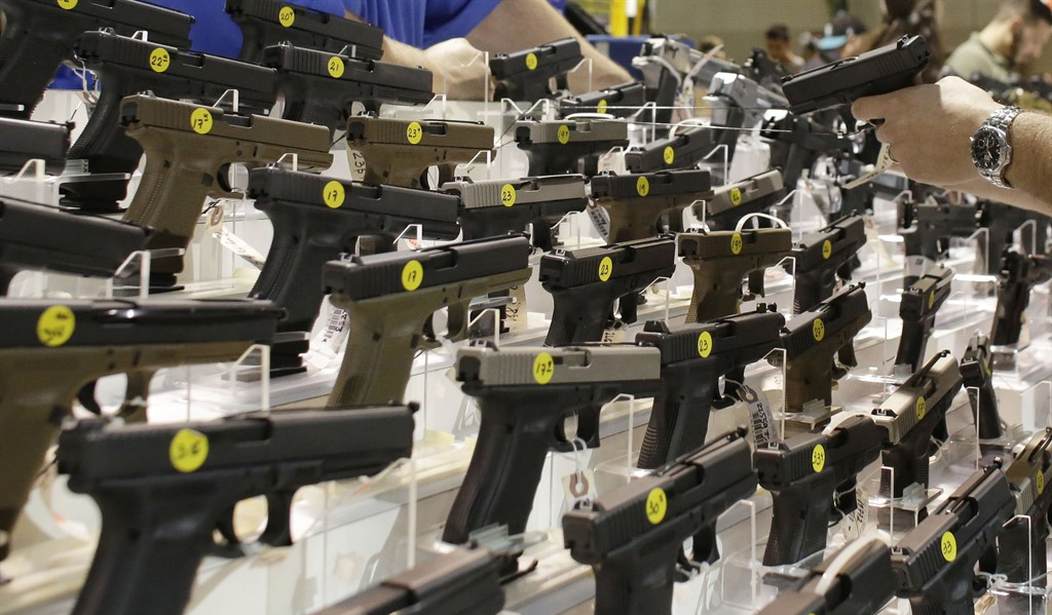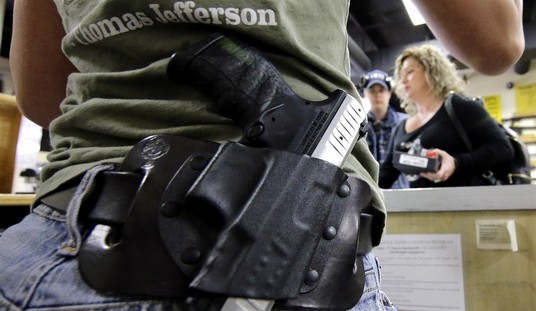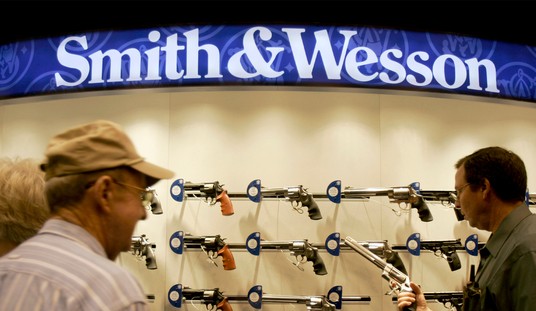AP Photo/Lynne Sladky
Washington state Governor Jay Inslee was probably looking forward to having the chance to sign a gun control bill. Nothing he’s done has indicated he’s anything but a fan of firearm restriction. Luckily, the anti-gun legislature was eager enough to give him the opportunity.
Washington Gov. Jay Inslee signed a group of bills Tuesday tightening rules on guns in some circumstances, part of a national shift toward more narrowly focused gun legislation.
Included in the bills were provisions allowing temporary gun bans on people being released from short-term psychiatric holds and people found incompetent to stand trial, and a prohibition on so-called “ghost guns” that lack serial numbers or are made from plastic and might be invisible to airport scanners.
The new rules also update existing gun-surrender requirements for people under restraining orders, adding a requirement for law enforcement to serve the orders.
Renee Hopkins, head of the Alliance for Gun Responsibility, an advocacy group that worked on the measures, said the bills passed Tuesday, combined with other regulations passed in previous years, make Washington “one of the states with the strongest laws in regards to preventing gun violence.”
You know, it’s funny. When the NRA “works on the measure,” people decry special interest writing the laws that legislators pass or support. When an anti-gun group does it, it’s citizenship in action or something.
The move, however, is part of an increasing pattern of gun control throughout the nation.
Gun policy watchers have said the bills fit into a broader pattern of legislation around the U.S. Instead of adding new restrictions for all gun owners, the measures generally focus on specific risk groups such as domestic abusers, violent felons or people experiencing a psychiatric crisis.
“It’s taking a risk-based approach to it, and really looking at the situations that we know are highest risk,” said Hopkins, referring to Tuesday’s bills as well as previous legislation involving suicide prevention and secure storage requirements.
That’s because the targetted approach is an easier sell. “We’re not taking everyone’s guns. Just that guy’s guns,” plays better, even with gun owners.
The problem is that these laws are structured so poorly that “that guy” may well end up being you. Someone placed on a temporary psychiatric hold still retains their civil liberties. If there’s no reason to keep them in a psychiatric facility, then there are no grounds for taking away their right to keep and bear arms.
These laws are written and sold as being tightly targeted on people that most would think probably shouldn’t have guns. The problem is how they’re applied and that they also make the next batch of folks that much more likely to be branded as a problem. California is considering a ban on people with DUI convictions from owning guns for up to ten years.
The idea is simple. It’s the slippery slope argument proven. They start with felons, then domestic abusers, then work to expand that group as much as possible. Each little bit is justified by the restrictions on the previous group. No one wants armed felons. No one supports domestic abusers. People aren’t fond of drunk drivers, either.
You start with people despised by society. That makes it easy. Then you incrementally add more and more people to the list until practically no one is untouched.
Washington state’s efforts are nothing more than proof that the state is looking to add more and more people to the prohibited list.








Join the conversation as a VIP Member